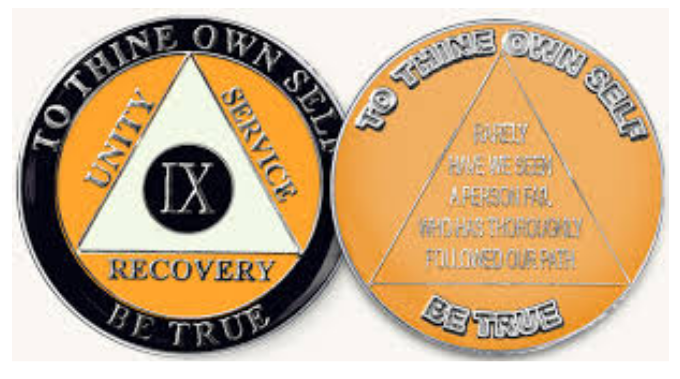
In the journey to sobriety, managing stress is a critical component of long-term recovery. Stress can trigger relapse, affect mental health, and undermine the progress made through recovery programs. At My12StepStore, we understand that every individual’s path to healing is unique, and effective stress management techniques can provide the support needed to maintain balance and sobriety. Our goal is to empower you with practical strategies that not only help reduce stress but also foster resilience. In this comprehensive guide, we will explore the nature of stress, its impact on recovery, and a variety of actionable techniques to manage stress effectively. Whether you’re shopping at our recovery store for alcoholics anonymous rings, sobriety dog tags, na medallions, or other sobriety gifts, the insights provided here can help you build a stronger foundation for a healthy, stress-free life.
Understanding Stress and Its Effects
Stress is a natural response to the challenges and uncertainties of life. In recovery, however, stress can be a double-edged sword. While a certain amount of stress can motivate change, excessive stress may lead to anxiety, depression, and even relapse. Physiologically, stress triggers the release of hormones like cortisol and adrenaline, which prepare the body for a “fight or flight” response. Prolonged exposure to these stress hormones, however, can weaken the immune system, disrupt sleep, and impair cognitive function.
In the context of recovery, stress often arises from both internal struggles—such as dealing with cravings, guilt, or unresolved emotions—and external pressures like financial instability, relationship challenges, or work-related issues. Understanding these stressors and their effects on both the body and mind is crucial. Recognizing the signs of stress early allows you to implement effective coping mechanisms and prevent these negative impacts from derailing your recovery efforts.
Effective Stress Management Techniques
Adopting a holistic approach to stress management can transform the recovery process. Below are several techniques that have proven effective in managing stress, maintaining emotional balance, and promoting overall well-being.
Healthy Diet
A balanced and nutritious diet plays a vital role in regulating mood and reducing stress. Foods rich in vitamins, minerals, and antioxidants help stabilize blood sugar levels and support brain health. Incorporating lean proteins, whole grains, fruits, and vegetables can enhance your energy levels and improve your overall sense of well-being. Hydration is also key; drinking enough water throughout the day can help mitigate the physical effects of stress.
Avoiding processed foods and excessive sugar intake is equally important, as these can lead to energy crashes and heightened stress responses. A mindful approach to eating not only nourishes your body but also reinforces positive self-care habits crucial for recovery.

Regular Physical Activity
Exercise is one of the most effective natural stress relievers. Engaging in regular physical activity helps release endorphins, which are chemicals in the brain that act as natural painkillers and mood elevators. Whether it’s a brisk walk, a yoga session, or a high-intensity workout, physical activity helps reduce anxiety and improve overall mental health.
Find an exercise routine that you enjoy and can stick with consistently. Not only does this improve physical health, but it also provides a structured way to manage stress and clear your mind. Regular workouts contribute to better sleep and increased energy levels, both of which are crucial for maintaining sobriety.
Mindfulness and Meditation
Mindfulness and meditation practices have gained widespread recognition for their ability to reduce stress and promote emotional balance. By focusing your attention on the present moment, you can break free from the cycle of worry and negative thoughts. Techniques such as deep breathing, guided imagery, and progressive muscle relaxation can help center your mind and alleviate stress.
Incorporating mindfulness into your daily routine can be as simple as spending a few minutes each day in quiet reflection. This practice not only calms the mind but also enhances your ability to respond to stress more effectively. For many in recovery, mindfulness is a cornerstone of their wellness routine, fostering a deeper connection with themselves and reinforcing their commitment to sobriety.
Adequate Sleep
Sleep is a fundamental pillar of health and plays an essential role in stress management. Poor sleep quality can exacerbate stress, impair cognitive function, and weaken the immune system. Establishing a consistent sleep routine and creating a relaxing bedtime environment can significantly improve the quality of your rest.
Consider setting aside a regular time for sleep and minimizing exposure to screens before bedtime. Practices such as reading, taking a warm bath, or practicing gentle stretching can signal your body that it’s time to wind down. Adequate sleep not only helps in managing stress but also supports overall recovery by allowing your body and mind to repair and rejuvenate.
Social Connections
Building and maintaining strong social connections is crucial in the journey to recovery. A supportive network provides emotional comfort, practical advice, and a sense of belonging. Whether it’s through support groups, family, or friends, sharing your experiences with others who understand your struggles can significantly alleviate stress.
Participating in community activities and engaging with peers can offer a much-needed break from daily stressors. At My12StepStore, our community is built on mutual support and shared experiences. Celebrating milestones with alcoholics anonymous rings or sobriety dog tags serves not only as a personal achievement but also as a reminder that you are not alone in your journey.
Journaling
Journaling is an effective tool for processing emotions and managing stress. Writing down your thoughts and feelings allows you to reflect on your experiences and gain insights into your emotional triggers. This practice can help you identify patterns and develop strategies for coping with stress.
By maintaining a journal, you create a personal record of your recovery journey. Over time, this record can serve as a powerful reminder of your progress, reinforcing the positive changes you have made. Journaling provides a safe space for self-expression and can be an invaluable tool in your stress management arsenal.

Engaging in Hobbies
Pursuing hobbies and creative activities can serve as a vital outlet for stress. Engaging in activities that you love not only distracts from negative thoughts but also brings joy and fulfillment. Whether it’s painting, gardening, playing a musical instrument, or any other passion, hobbies provide a healthy escape from everyday stressors.
These activities help stimulate the mind, promote relaxation, and foster a sense of achievement. By dedicating time to hobbies, you not only manage stress but also enrich your life with experiences that bring lasting happiness and balance. The key is to find activities that resonate with you and incorporate them regularly into your routine.
Developing Resilience
Resilience is the ability to bounce back from setbacks and adapt to challenging situations. In the context of recovery, developing resilience is essential for overcoming obstacles and maintaining sobriety. Building resilience involves fostering a positive mindset, embracing change, and learning from experiences.
One way to cultivate resilience is by setting realistic goals and celebrating small victories along the way. Each achievement, no matter how minor, serves as a reminder of your strength and capability. Resilience also comes from building a strong support system, which reinforces the notion that you are capable of overcoming adversity. With resilience, stress becomes more manageable, and the journey to recovery becomes a series of empowering steps rather than insurmountable challenges.
Professional Support
While personal strategies are critical in managing stress, professional support plays a vital role in the recovery process. Therapists, counselors, and support groups can provide expert guidance tailored to your unique needs. Engaging with professionals who specialize in addiction and recovery can help you navigate emotional challenges and develop effective coping mechanisms.
Professional support also offers a safe space to explore deeper issues that may contribute to stress. Whether through individual counseling or group therapy sessions, these resources provide a structured approach to overcoming obstacles and reinforcing your commitment to sobriety. Utilizing professional support is a sign of strength and a proactive step towards a healthier, more balanced life.
Conclusion
In conclusion, effective stress management is crucial for sustaining recovery and achieving long-term sobriety. By adopting a holistic approach that includes a healthy diet, regular physical activity, mindfulness, adequate sleep, social connections, journaling, and engaging in hobbies, you can build resilience and manage stress more effectively. Coupled with professional support, these techniques form a robust framework for overcoming stress and thriving in recovery. At My12StepStore, we are committed to supporting your journey with quality products like alcoholics anonymous rings, sobriety dog tags, na medallions, and other meaningful sobriety gifts. Embrace these strategies to create a balanced, stress-free life and continue your path toward lasting recovery.
